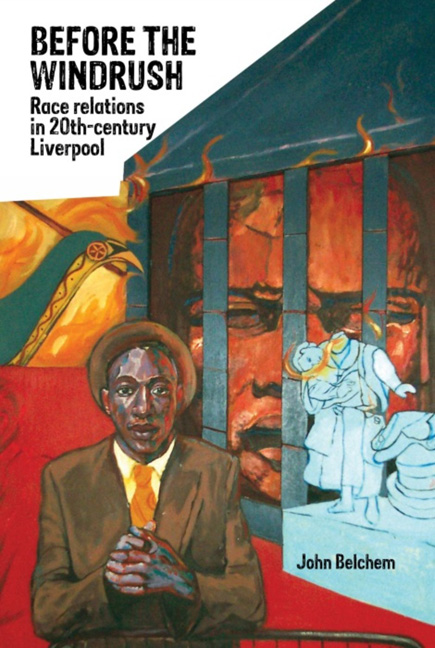Book contents
- Frontmatter
- Dedication
- Contents
- List of illustrations
- List of tables
- List of abbreviations
- Acknowledgements
- Preface
- Introduction: ‘The most disturbing case of racial disadvantage in the United Kingdom’
- Chapter One Edwardian cosmopolitanism
- Chapter Two Riot, miscegenation and inter-war depression
- Chapter Three Wartime hospitality and the colour bar
- Chapter Four Repatriation, reconstruction and post-war race relations
- Chapter Five Race relations in the 1950s
- Chapter Six 1960s: race and youth
- Chapter Seven The failure of community relations
- Chapter Eight ‘It took a riot’
- Sources consulted
- Index
Chapter Seven - The failure of community relations
- Frontmatter
- Dedication
- Contents
- List of illustrations
- List of tables
- List of abbreviations
- Acknowledgements
- Preface
- Introduction: ‘The most disturbing case of racial disadvantage in the United Kingdom’
- Chapter One Edwardian cosmopolitanism
- Chapter Two Riot, miscegenation and inter-war depression
- Chapter Three Wartime hospitality and the colour bar
- Chapter Four Repatriation, reconstruction and post-war race relations
- Chapter Five Race relations in the 1950s
- Chapter Six 1960s: race and youth
- Chapter Seven The failure of community relations
- Chapter Eight ‘It took a riot’
- Sources consulted
- Index
Summary
Prescient warnings from ‘black’ Liverpool went largely unheeded in the burgeoning race relations ‘industry’ prompted by legislation in the late 1960s and the mounting hysteria about immigration. A comparatively rare sight in the city, new arrivals from the West Indies, India and Pakistan constituted a mere 0.4% of the local population, well below the threshold for resource investment and concern. Blighted by recession and shunned by ‘new Commonwealth’ migrants, Liverpool, the once proud second city of empire, was in seemingly unstoppable collapse, careering down the urban hierarchy to unenviable designation (and denigration) as the ‘shock city’ of post-industrial, post-colonial Britain. Although meriting special attention as a timely warning and object lesson, the problematic Liverpool experience of race relations was ignored as the city was marginalised, stigmatised and traduced. The proverbial (and irredeemable) exception, Liverpool was portrayed as an internal ‘other’ at odds with positive developments elsewhere in enterprise Britain. Against this backcloth, community relations continued to deteriorate as hard-pressed agencies seeking to regenerate and rehabilitate the city seldom bothered to include (yet alone prioritise) measures to address racial discrimination and disadvantage in a succession of ill-fated plans and projects to tackle multiple deprivation. Along with most of the local media, councillors remained wedded to the fiction of racial harmony, dismissing all who argued otherwise as ‘interfering do-gooders and sensationalist sociologists’. Still to acknowledge the ‘special but not separate’ needs of the long-resident black British population in the city, the Council simply sought to catch up with developments elsewhere, implementing English language centres and other forms of reception provision for new arrivals. Of little relevance to long-established (and long-suffering) black Liverpudlians, such projects caused anger and offence, hindering the efforts of those seeking to promote community relations. A perceived increase in levels of police harassment of black youths exacerbated the tension, leading to the formation of the Merseyside Anti-Racialist Alliance ‘to combat the institutionalized forms of racial discrimination that have existed on Merseyside for a very long time’.
- Type
- Chapter
- Information
- Before the WindrushRace Relations in 20th-Century Liverpool, pp. 225 - 250Publisher: Liverpool University PressPrint publication year: 2014



